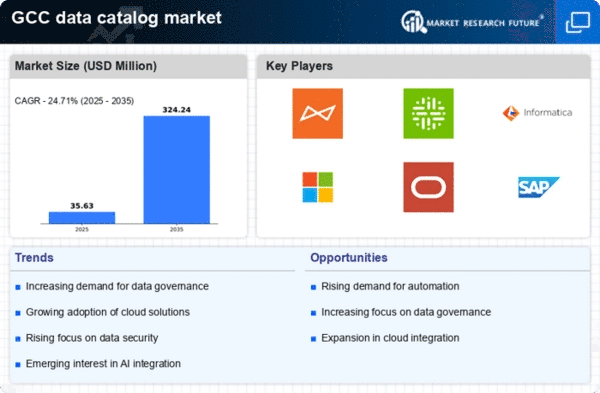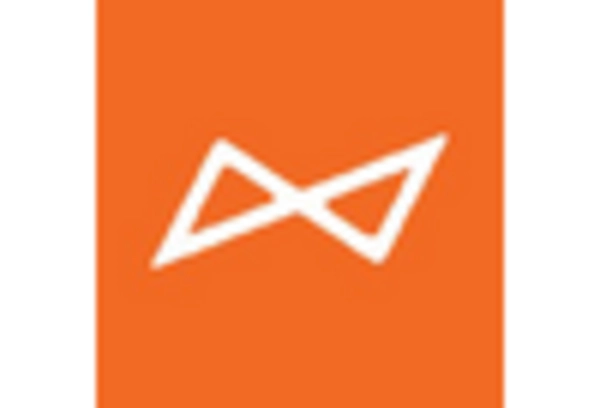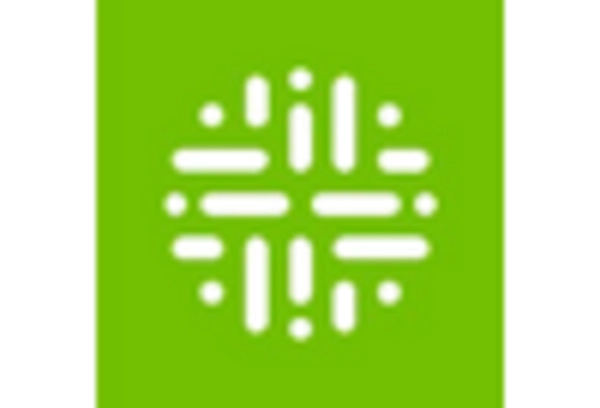Emphasis on Data Security and Privacy
In the context of the data catalog market, the increasing emphasis on data security and privacy is a critical driver. With the rise of data breaches and stringent regulations in the GCC, organizations are prioritizing the protection of sensitive information. The data catalog market is responding by offering solutions that enhance data governance and compliance. Companies are investing in data catalogs that provide robust security features, ensuring that data is accessible only to authorized users. This focus on security is likely to propel market growth, as organizations seek to mitigate risks associated with data management and maintain customer trust.
Rising Demand for Data-Driven Decision Making
The data catalog market is experiencing a notable surge in demand as organizations increasingly recognize the value of data-driven decision making. In the GCC region, businesses are investing heavily in data analytics to enhance operational efficiency and drive strategic initiatives. This trend is reflected in a projected growth rate of approximately 25% in the data catalog market by 2026. Companies are leveraging data catalogs to streamline data discovery, improve data quality, and foster collaboration among teams. As organizations strive to become more data-centric, the data catalog market is poised to benefit significantly from this shift, enabling firms to harness their data assets effectively.
Expansion of Digital Transformation Initiatives
The ongoing digital transformation initiatives across various sectors in the GCC are significantly impacting the data catalog market. Organizations are increasingly digitizing their operations, leading to a surge in data generation and the need for effective data management solutions. The data catalog market is benefiting from this trend, as companies seek to implement data catalogs that facilitate data integration and accessibility. With a projected market growth of around 20% by 2026, the demand for data catalogs is expected to rise as businesses strive to optimize their digital strategies and enhance their data capabilities.
Increased Focus on Collaboration and Data Sharing
The data catalog market is being driven by an increased focus on collaboration and data sharing among organizations in the GCC. As businesses recognize the importance of data as a shared asset, they are investing in data catalogs that promote transparency and accessibility. This trend is particularly relevant in industries such as finance and healthcare, where data sharing can lead to improved outcomes. The data catalog market is likely to see growth as organizations adopt solutions that facilitate collaboration across departments and with external partners. This emphasis on data sharing is expected to enhance innovation and drive competitive advantage.
Growth of Artificial Intelligence and Machine Learning
The integration of artificial intelligence (AI) and machine learning (ML) technologies is transforming the data catalog market. In the GCC, organizations are increasingly adopting AI-driven solutions to automate data management processes and enhance data discovery. The data catalog market is witnessing innovations that leverage AI to improve metadata management and facilitate advanced analytics. This trend is expected to drive market growth, with estimates suggesting a potential increase in market size by 30% over the next few years. As businesses seek to harness the power of AI and ML, the demand for sophisticated data catalog solutions is likely to rise.
















